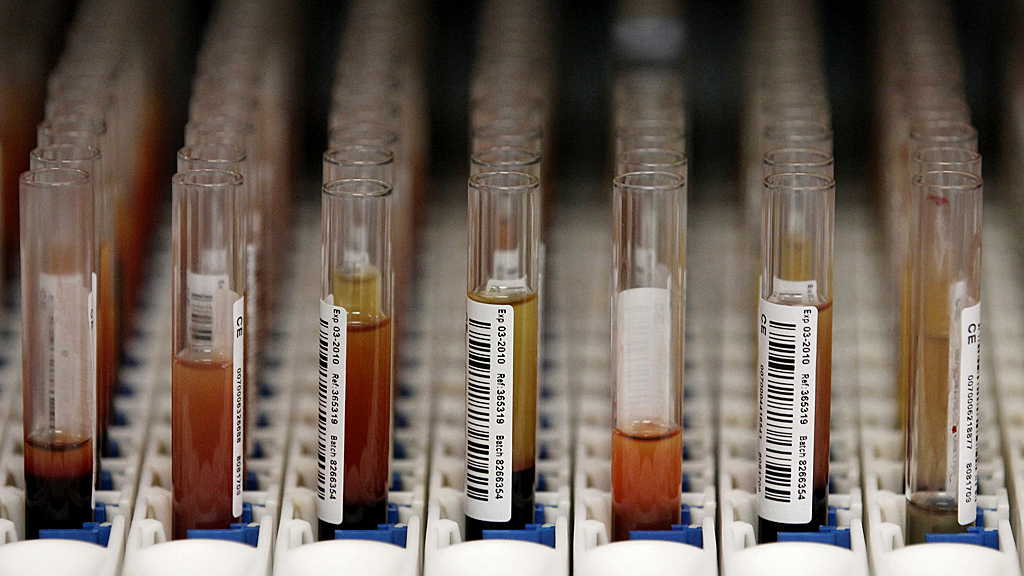Vaccine could end risk of diabetes for thousands
Scientists research a vaccine which could reduce or eradicate the risk of developing Type 1 diabetes for thousands of people.

The research project led by Diabetes UK could see the vaccine being available within a generation.
It would be offered to those who are most at risk – those that have a family history of the condition – and it would also be offered to those diagnosed early on with the condition with the aim of eradicating it.
Kirsty McLellan was diagnosed with Type 1 diabetes at the age of five. This September it will be her 20th year of living with the ailment.
Her father was adopted and she has no idea of his medical history following his death. Her mother’s family has no history of diabetes.
Although the potential vaccine cannot help her, she would benefit as a potential parent if she wanted to decrease any risk of passing it onto her children.
She told Channel 4 News: “The ultimate goal as a parent is to protect the ones you love. I first became aware of this vaccine idea two to three years ago. I thought it was brilliant.
“I’m not sure I would be comfortable having children knowing I could pass on what I have. If I could prevent my children from going through what I have, I would absolutely get them vaccinated.”
There are around 300,000 people in the UK with Type I diabetes. Diabetes suffers have an auto-immune response which means the body turns against itself. The vaccine would trigger specific cells in the body to stop any imbalance and allow the body to function normally.
Mark Peakman, professor of clinical immunology at Kings College London and part of Guy’s and St Thomas’ Biomedical Research Centre, is helping to develop the vaccine.
He said: “Looking at where we are now, 10 years is a realistic estimate for us to develop the vaccine; and it will be a two-pronged attacked. If you already have Type 1, there is not a lot we can do for you. But a good vaccine might be able to save a bit of function for those in the early stages and reduce the risk if you have to live with it.
“At the moment we are good at identifying groups of people who are at risk, so yes the ultimate goal would be to vaccinate them and eradicate the chance of them developing it.”
Ms McLellan added: “My mum was a nurse and she was able to pick up signs that something wasn’t right with me and she took me to the doctor’s.
“After being diagnosed with Type 1, my earliest memories were that I never got invited to other children’s parties because they would have to give me different party food. It might not sound important but when you’re five and you’re the only one being left out, it does affect you.
“We would always go on self-catered holidays and not stay in hotels so that Mum could manage what I ate. Even now I can’t just spontaneously go somewhere. I have to plan what time I’m eating and when to take my medication.”
According to Professor Peakman, Type 1 costs the NHS £2bn a year. He believes the vaccine, once developed, is likely to cost “peanuts” in comparison.
Barbara Young, chief executive of Diabetes UK, told Channel 4 News that potentially thousands of people could avoid a condition that can be very difficult to manage. She said: “This is a really exciting time for research into the development of a vaccine for Type 1 diabetes, and there’s a real sense of hope about the future.”
The £4m research project is being funded by through the charity’s partnership with Tesco.
-
Latest news
-
Windrush scandal: returning to the UK after a forty year wait6m

-
Netanyahu ‘survival’ depends on ‘expanding war’ says head of Palestinian National Initiative5m

-
Proposed law change could strip parental rights from paedophiles5m

-
Hugh Grant settles privacy lawsuit against The Sun newspaper publisher2m

-
Post Office Scandal: what did top executive know?6m

-




